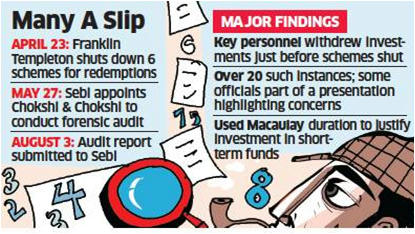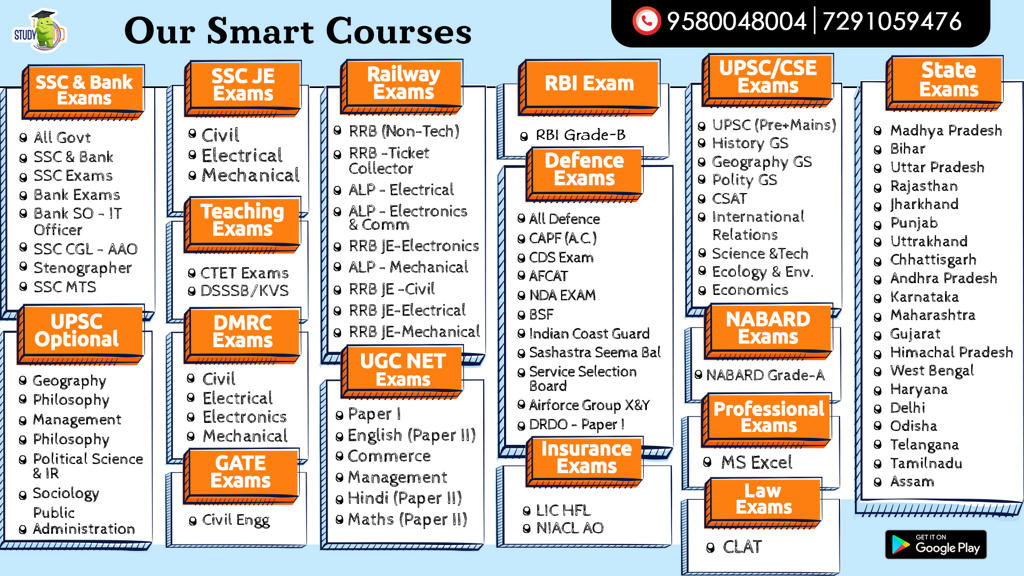Table of Contents
- India and Japan
- Jio
- Karnataka
- Assam
- Abuja
Q.) In a first, Indian Air Force to participate in Exercise ______ in UAE
- Desert Sand II
- Desert Flag VI
- Desert Rush
- Desert Rose V
Q.) Which of the following state is not seeing an increase in daily cases of Covid-19?
- UP
- Punjab
- Gujarat
- MP
Q.) Which 19th-century astronomer claimed that he saw a water filled channels on Mars?
- Giovanni Schiaparelli
- Percival Lowell
- Otto Wilhem von Struve
- Angelo Secchi
Q.) China announced to achieve carbon neutrality by which year?
- 2030
- 2040
- 2050
- 2060
Q.) A massive fire broke out in which of the largest Indian biosphere?
- Nilgiri
- Simlipal
- Agasthyamalai
- Khangchendzonga
Ending the war in Yemen
- One of the first key foreign policy decisions that President Joe Biden took after assuming office was to end the U.S.’s support for Saudi Arabia’s six-year-long war on Yemen.
- He halted weapons sales to Saudi Arabia, appointed a Special Envoy for Yemen, and removed the Shia Houthi rebels, who control the northwestern parts of the Arab country, from the list of foreign terrorist organisations.

- The crisis in Yemen is not only about the Saudi-Houthi conflict.
- Humanitarian
- Civil
- Geopolitical
- Sectarian
- When Saudi Arabia, the UAE and their allies went to Yemen in March 2015, they had a clearly defined objective
- Drive the Houthis, who are backed by Iran, out of the capital Sana’a
- Stabilise the country under the government of Abdrabbuh Mansur Hadi
- The war has killed over 10,000 people and pushed the country to the brink of a famine.
- According to the UN, 50,000 Yemenis are starving to death and 16 million will go hungry this year.
- They are depending on food assistance to survive, but the war is making it difficult for aid groups to operate in the country.
- This week, the UN held a conference to raise up to $2.41 billion for aid works in Yemen, but got pledges only for $1.35 billion, which means the aid operations would be impacted further.
- The last six years of war prove that the Saudi strategy of blockade and bombing was a failure.
- The Houthis continued to amass weapons, even technologically advanced drones which they use to attack Saudi targets across the border, despite the blockade, while the Yemeni people continue to suffer.
- A ceasefire is in everybody’s interest but the question is who will blink first.
Efficacious too
- Vaccine efficacy of 6% for Bharat Biotech’s Covaxin at the first interim analysis of phase-3 trials in India is indeed promising
- The vaccine efficacy was measured based on symptomatic COVID-19 disease — mild, moderate or severe — two weeks after the second dose.
- The phase-3 trial that began last November recruited 25,800 participants, with one half receiving the vaccine and the other, a placebo.
- As per the phase-1 data published in The Lancet Infectious Diseases and a preprint of the phase-2 trial, Covaxin appears to be safe and highly immunogenic, and has also been found to be effective against the 1.1.7 variant first found in Britain.
- While Covaxin accounts for less than 10% of all COVID-19 vaccinations in India, the absolute number of vaccinations as on March 3 stands at over 6 crore.
- The Indian regulator should therefore revise the restricted emergency use approval such that Covaxin is treated on a par with Covishield and should no longer seek additional precautions in the form of signed consent before vaccination and also remove the label “clinical trial mode” from the approval; their continuation would send a wrong signal about its safety and efficacy.
- With a narrow window of opportunity available to vaccinate people before a second wave probably sets in or dangerous variants get established, India can ill afford to have roadblocks in the uptake of either vaccine.
Clearing a low bar
- India’s latest auction of telecommunications spectrum is a qualified success from the Centre’s perspective
- mainly because the winning bids cumulatively exceeded the government’s own low expectations for receipts from the sale of airwaves
- The three largest telecom services providers sought to optimise their purchases of radio spectrum by seeking to acquire only what they deemed essential airwaves, either as renewal or for strengthening their network
- The newest entrant to the industry, Reliance Jio, was also the most acquisitive, accounting for close to 60% of the spectrum bought at 488.35 MHz and contributed almost three-fourths of the ₹77,815 crore that the Department of Telecommunications garnered from the sale.
- That Jio’s ₹57,123 crore by itself surpassed the government’s estimate of ₹45,000-₹50,000 crore
- The relatively low frequency 700 MHz, for instance, is considered as ideal for enhancing network availability and reach in the highly urbanised settings of large, densely built-up cities where the issue of poor signal penetration inside buildings is a perpetual bugbear for users and providers alike.
- The significantly more efficient 700 MHz was yet again shunned by all bidders given its prohibitive reserve price
- It must now act quickly to ensure it does not end up hurting the very sector that has become a key multiplier of economic empowerment and progress.

The Issue is Control, Not Insulating Sector |ET
- Can India draw in investment from China without compromising national security?
- Rather than sectors or levels of investment, policy must focus on control.
- Indeed, a growing economy like India should be happy to make use of capital from all across the world, including from China.
- However, such capital must come on terms that India determines to advance national security.
- And control is the key element in determining the capacity of a foreign investor to do anything more than rake in profits.
- Can Chinese capital be allowed in national highways or ports or electricity grids?
- These are no longer passive infrastructure
- What kit procured from where and installed by whom under whose supervision is the key question.
- This is not determined by the national origin or level of foreign capital in the project.
- The ability to conduct forensic audit of not just accounts but also technical equipment is another prerequisite.
- Indian infrastructure companies that seek foreign investment must have shares with differential voting rights, and retain control with Indians who will not sign away economic interest and voting rights associated with the shares registered in their names.
- Putting these in place is vital to give entrepreneurs broad access to global capital.
Financial News
Haryana Quota

- Haryana’s proposed move to reserve 75% of jobs for locals with salaries of up to ₹50,000 a month may lead to an exodus of tech and back office companies.
- It is inconsistent with the Centre’s push towards work from anywhere
- Gurugram, one of Haryana’s largest cities and home to one of the country’s largest concentration of engineers after Bengaluru and Hyderabad, houses critical operations for both global and local technology giants such as Google, Microsoft, Tata Consultancy Services, Infosys and Genpact.
Sebi Issues Notices to Franklin Templeton

- The Securities and Exchange Board of India (Sebi) has issued show-cause notices to Franklin Templeton Asset Management Company (AMC), trustees and key managerial personnel based on findings of a forensic audit report, according to people with knowledge of the matter.
- Sebi had ordered the audit after the fund house wound up six debt mutual fund schemes in April last year.
- It asked why action should not be taken against them for not discharging their fiduciary responsibilities toward investors and for lapses in the risk-management process.
Govt to Hold At Least 26% in DFI, Offer Guarantees

- The government will hold at least 26% stake in the proposed development financial institution (DFI) that will be set up with authorised share capital of ₹1 lakh crore.
- The government is likely to have full ownership of the DFI to start with but over time may offer up to 74% stake to domestic and foreign financial institutions, multilateral lenders and sovereign wealth funds.
- The infrastructure financier will be called the National Bank for Financing Infrastructure and Development (NaBFID) and headquartered in Mumbai.
Feb Services Growth Fastest in a Year, Jobs Fall Further
- A quicker increase in new orders and stronger demand led to expansion in India’s service providers’ business activity at the fastest rate in a year in February with the Covid-19 vaccine roll out leading to an improvement in business confidence
- The India Services Business Activity Index rose to 55.3 in February from 52.8 in January.
- However, employment continued to fall for third month in a row and companies noted the sharpest rise in overall expenses in eight years.
- Transport & storage was the best-performing segment of the service sector among the five categories monitored by the survey, recording the strongest increases in new business and output during February.
- Information & communication was the only sub-sector to post contraction in sales and business activity.
Univ Funding may be Linked to Scorecard
- India is looking at a tiered structure to fund universities in the country, linking their financial aid with performance, tie-ups with foreign universities besides ways to improve distance learning.
- The NITI Aayog has been tasked to prepare a strategy paper laying the road map to make tertiary education world class to draw students from overseas and these recommendations are likely to be a part of it.
- The government will focus on neighbouring countries, Asean and Saarc countries along with Iraq, Iran and Saudi Arabia among others to begin with.
- Under the tiered structure for universities, the government could give additional resources to research-focussed universities, which commit to compete globally and have significant improvements in outcomes over a period of time.
Labour Codes Face Delay as States Fail to Frame Rules
- The government’s plan for a fast-track rollout of the four labour codes is facing turbulence with states still to frame rules, leaving the Centre in a limbo about whether it should notify the rules in areas under its ambit.
- Absence of state rules may create a legal vacuum and defeat the entire purpose of labour reforms as three-fourths of the total establishments come under states’ ambit.
- The Centre’s sphere includes ports, docks, mines, banking and insurance & railways while most of manufacturing & services fall in the state sphere.
NEWS
- PM Modi to hold virtual summit with Swedish counterpart Stefan Löfven today
- Prime Minister Modi to receive CERAWeek Global Energy and Environment Leadership Award this evening
- Notification for Second Phase of Assembly Elections in West bengal, Assam to be issued today
- Central Board of EPFO recommends 8.5 pct annual rate of interest for current financial year
- India receives highest ever FDIs of over 67 bn US dollars for first nine months of current fiscal
- COVID-19 vaccine doses administered in country crosses 1.77 crore
- BJP CEC meets in New Delhi to finalise party’s first list of candidates for five Assembly polls
- Education Minister congratulates 12 Indian Institutions on securing position in top 100 in QS World University Rankings
- 1 Indian killed, 1 missing in Nepal police firing
- BNS Prottoy Commanding Officer meets Western Naval Command Chief in Mumbai
- India cautions UNSC against dangers of weapons of mass destruction falling into hands of terrorist groups
- UN Human Rights investigator calls on UNSC to impose global arms embargo, economic sanctions on Myanmar
- More than 930 mn tonnes of food thrown away in waste bins every year: UN global report
Download Free PDF – Daily Hindu Editorial Analysis






















 WhatsApp
WhatsApp